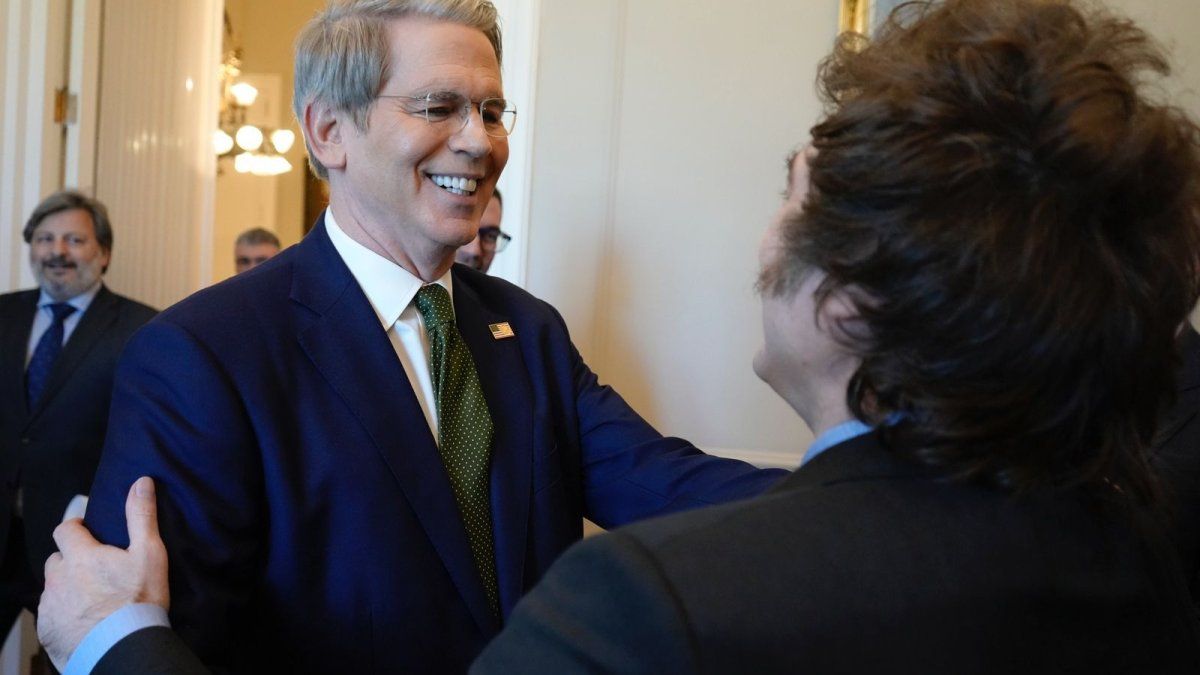In addition, Lilita also warned that such a decision violates articles of the National Constitution. “Mr. President, you cannot and should not leave the NC even if you don’t like it, because the rule of law demands it. Their repeated non-compliance and subjugation of the spirit of the letter of the Constitution through indiscriminate use of decrees of necessity and urgency and delegated legislation demonstrate this,” Carrió shot.
Elisa Carrió’s strong criticism of Javier Milei
In the text, Carrió addressed the President in her “character as a former Conventional Constituent, author of the text of the article 75, paragraph 22 and 23 of our Constitutionwhich grants constitutional hierarchy to the international human rights treaties to which our country is a party, since the return of democracy and which are the fundamental basis of the Rule of Law and the Republic, as a citizen of this Nation and as a defender, of women’s human rights for many years.
NOTE PRESIDENCY OF THE NATION.pdf
In this way, Carrió prepared to express “the most absolute rejection and the deepest concern for the diplomatic decision adopted by the Argentine Republic not to subscribe to the Declaration on gender equality and the empowerment of women.” In the run-up to the G20 Summitwhich will take place next November 18 and 19 in Rio de Janeiro, The text was agreed upon to be discussed during the meeting of the Heads of State.
However, Argentina was the only country in the group that refused to sign the agreed document.
“In said preparatory document, ministers and officials responsible for women’s government areas proposed actions to empower and eliminate inequalities among women in accordance with the commitments assumed by all members of the G20 in the Beijing Declaration and Platform for Action. , adopted in 1995, at the Fourth World Conference on Women, by 189 countries, including the Argentine Republic and the Sustainable Development Goals (SDG) of the 2030 Agenda, among others,” Carrió explained about the declaration.
In this sense, the former representative analyzed the Government’s determination and denounced that “the Government’s decision to ignore the global women’s agenda by not subscribing to the declaration issued by the Women’s Empowerment Working Group within the framework of the G20, violates articles 16, 75 paragraphs 22 and 23 and 41 of the CN“.
“Mr. President, You cannot and should not leave the NC even if you don’t like it, because the rule of law demands it. Their repeated non-compliance and subjugation of the spirit of the letter of the Constitution through indiscriminate use of decrees of necessity and urgency and delegated legislation demonstrate this,” warned the leader of the Civic Coalition.
Finally, Lilita stated: “In the conviction that, Neither you, nor your sister, nor Santiago Caputo, nor the new Chancellor have ever read the CN, so I am writing this letter to you, as an intimation.. Also, I notify you of the content of this letter through network X since you communicate through that medium, replacing institutional forms and the rule of law.”
What does the G20 statement say that Javier Milei’s government refused to accompany?
In detail, the text that aroused the rejection of the Government and its differentiation from the other nations belonging to the G20 recognizes “that All women and girls face particular barriers due to various factors other than their gender.” and “that all women and girls are agents of change and have an important role in decision-making, leadership and responding to global challenges.” In addition, it notes that “They should be able to contribute equally to all sectors and at all levels“.
In this way, the document states that the creation of task force in 2023 at New Delhi Leaders Summit to support the G20 Women’s Ministerial “expresses a collective effort to promote measures to achieve gender equality and promote the empowerment of all women and girls”, which reaffirms the commitments made to promote gender equality, promote development led by women, the rights of all women and girls and our commitment to implement the Beijing Declaration and Platform for Action“.
G20-BRAZIL.jpg
The G20 will take place on November 18 and 19 in Rio de Janeiro, Brazil.
Thus, the final documents of the declaration, added to the Sustainable Development Goals (SDGs) at the core of the 2030 Agenda, propose to “promote full, equal and meaningful participation of women in the workforcemeet the goals set at the 2014 Brisbane Summit and close the gender pay gap; address the unequal distribution of unpaid domestic and care work and ensure equal access to decent work, quality jobs and gender parity as a goal for senior and leadership positions” and “ensure equality”.
On the other hand, it is also urged to take measures to “end misogyny and gender violence“and warns that “the sexual and gender violence against women and girls is alarmingly high in the public and private spheresboth online and offline.” Because of this, nations must consider “the need to invest in and promote public policies aimed at preventing and eliminating all forms of gender violence,” to expand economic and social opportunities for women “and build safe societies free of violence for all.”
Despite the consensus and general agreement, the Argentine government decided not to sign the declaration and in this way a new source of conflict was opened with the Lula da Silva administration. “When the far right advances, women lose. Argentina, the only G20 country that does not join the consensus on gender equality. Brazilian Presidency firm in its position that equality is not negotiable,” he published on his “X” account. Vanessa Dolce de FariaHigh Representative for Gender Issues of the Brazilian Ministry of Foreign Affairs.
The declaration had the support of all the countries of the G20, which constitute 85% of global GDP and more than 75% of international trade. The bloc is made up of Germany, Australia, Brazil, Canada, China, South Korea, the United States, France, India, Indonesia, Italy, Japan, Mexico, Russia, the United Kingdom, South Africa and Turkey and two blocs: the European Union and the African Union.
Source: Ambito
I am Pierce Boyd, a driven and ambitious professional working in the news industry. I have been writing for 24 Hours Worlds for over five years, specializing in sports section coverage. During my tenure at the publication, I have built an impressive portfolio of articles that has earned me a reputation as an experienced journalist and content creator.




